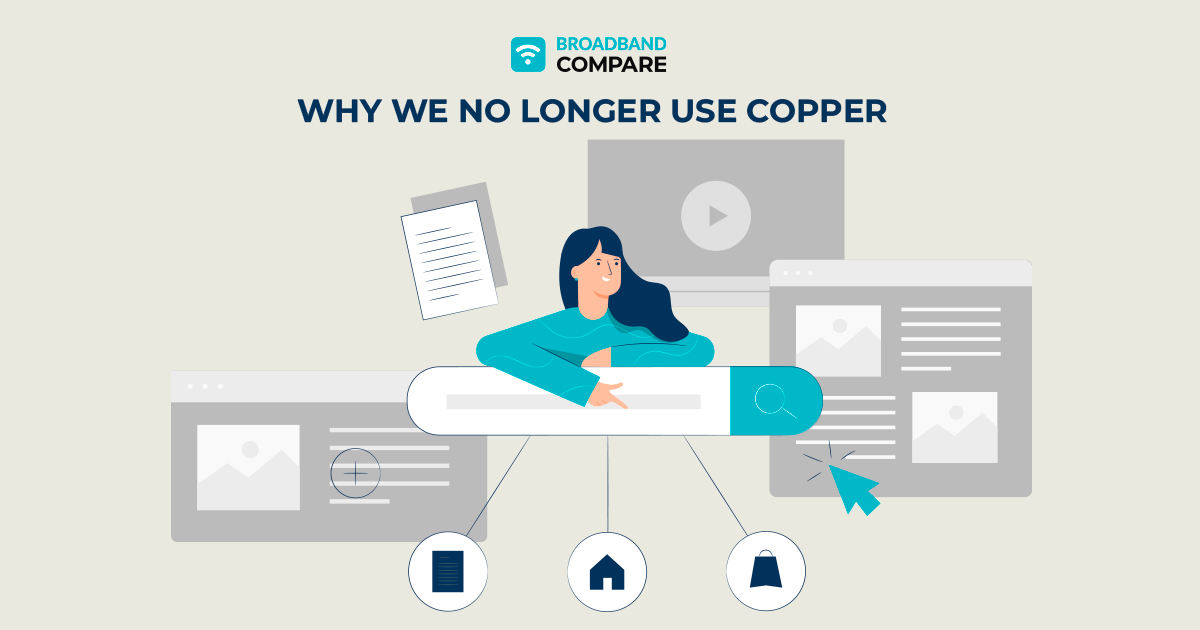
The copper network was the first broadband network in New Zealand. The company Telecom (which has since rebranded and been renamed as Spark) began providing broadband (as ADSL) in 1999, under the name JetStream. This roll out was gradual, arriving at local exchanges.
The copper network was revolutionary, changing the way we connected, communicated, and gamed, and relaxed forever. However, in 2008, the fibre network was introduced into New Zealand, and it rapidly spread throughout the country, initially focusing on urban and suburban areas.
Broadband network providers such as Chorus are currently retiring their copper networks, by phasing out the availability of broadband and phone services that use the copper network.
The copper network used copper cables. They worked by using electricity to transmit data.
Meanwhile, the fibre network is made up of fibre optic cables, consisting of hundreds of tiny glass fibres. They use the power and speed of light to transmit data. This means that fibre is much, much faster and more efficient than copper.
As the digital world has evolved, so has our need for speed. We need fast and efficient internet so we can get our work and study done. Fast internet, such as the speeds that fibre is capable of, also means we can enjoy streaming and gaming without buffering or things taking ages to load.
The bandwidth refers to the amount of data that can be transmitted at the same time. Fibre has a much larger bandwidth than copper, meaning that busy households can all be connected at the same time. For example, you can be streaming, video calling, faming, working at the same time, without anyone experiencing buffering and interruptions. The copper network would become stressed when multiple devices were connected, resulting in slower download and upload speeds.
The fibre cable wires are as thin as a human hair. Yet, they are capable of carrying lots of data over great distances, providing equal upload and download speeds so you can get your tasks done, and stream, without delay.
Copper doesn’t fare as well with the elements as fibre. It is one of the reasons fibre was developed! Over time, the environment can damage copper cables.
Meanwhile, fibre cables are highly durable against storms and temperature changes. They can even be submerged in water! There is an enormous fibre cable system access the Atlantic Ocean, connecting the United States to Europe and beyond.
Fibre is the future of broadband. Its technology is designed to handle our intensive internet and data needs, both now, and in the future. It’s fast, reliable, and widely available now! There are also different types of fibre speeds. Each speed suits a different type of household and their unique needs. For example, fibre 50 (or 50/ 100 Mbps) is best suited for households of 1-2 people who use the internet for basic streaming, online banking, web emails, and social media. Whereas fibre 300 is great for larger households of 4 plus, who have multiple devices connected and use the internet for work, study and play. It’s important to be on the right speed for your needs to avoid paying for more than you need, and to prevent buffering and interruptions. Click the button below to compare the different fibre speeds and find the right one for your household.
What Internet Speed Do I Need?
Once you have determined your fibre speed, jump on Broadband Compare to compare different fibre plans available to you, so you can unlock savings. Comparing allows you to make a fully informed decision, and our user-friendly platform makes it easy to do so within minutes, and without bias, hassle or obligation. Avoid paying for too much and find the plan that makes a difference to your budget both in the short and long term.